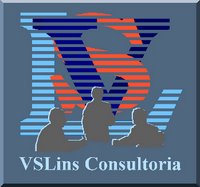Referências
Livros
- BAUMARD, Phillipe. Tacit Knowledge in Organizations. London: Sage Publications, 2001.
- BRUNER, Jerome. Actual Minds, Possible Worlds. Harvard University Press, 1987.
- CAVALCANTI, Marcos & GOMES, Elisabeth & PEREIRA, André. Gestão de Empresas na Sociedade do Conhecimento: um roteiro para a ação. Rio de Janeiro: Editora Campus, 2001.
- DAVENPORT, Thomas H. & PRUSAK, Laurence. Conhecimento Empresarial. Rio de Janeiro: Editora Campus, 1998.
- DE BONO, Edward. Wordpower: An Illustrated Dictionary of Vital Words. New York. Penguin Books, 1988.
- GILL, Jerry H. The Tacit Mode: Michael Polanyi postmodern philosophy. New York: State University of New York Press, 2000.
- KIKOSKI, Catherine Kano & KIKOSKI, John F. The Inquiring Organization. Tacit Knowledge, Conversation, and Knowledge Creation: Skills for 21st Century Organizations. Westport, CT: Praegers Publisher, 2004.
- KROGH, Georg Von & ICHIJO, Kazuo & NONAKA, Ikujiro. Enable Knowledge Creation. How to unlock the mystery of tacit knowledge and release the power of innovation. New York: Oxford University Press, 2000.
- LINS, Sérgio. Transferindo Conhecimento Tácito: uma abordagem construtivista. Rio de Janeiro: Editora Epaper, 2001.
- MINSKY, Marvin. The Society of the Mind. New York: Simon Schuster, 1985.
- NONAKA, Ikujiro e TAKEUCHI, Hirotaka. Criação de conhecimento na empresa : como as empresas japonesas geram a dinâmica da inovação. Rio de Janeiro: Campus, 1997.
- POLANYI, M. Personal Knowledge. Towards a post critical Philosophy. Chicago: University of Chicago Press, 1958.
- POLANYI, M. The tacit Dimension. Garden City, NY: Doubleday & Co., 1966.
- REBER, Arthur S. Implicit Learning and Tacit Knowledge. Oxford Psychology Series. 2000.
- SAIANI, Cláudio. O valor do conhecimento tácito: a epistemologia de Michael Polanyi na escola. São Paulo: Coleção Ensaios Transversais, 2004.
- SCHRAGE, Michael. Shared Minds: The New Technologies of Collaboration. New York: Random House, 1990.
- SENGE, Peter. A Dança das Mudanças: o desafio de manter o crescimento e o sucesso em organizações que aprendem. Rio de Janeiro: Editora Campus, 1999.
- SENGE, Peter. A quinta disciplina: caderno de campo. Rio de Janeiro: Editora QualityMark, 1994.
- STENBERG, R.J. Complex Cognition: The Psychology of Human Thought. New York: Oxford University Press, 2001
- STERNBERG, R. J., & WAGNER, R. K. Practical Intelligence: Nature and origins of competence in the everyday world. New York: Cambridge University Press, 1986
- STERNBERG, R. J. Successful Intelligence : How Practical and Creative Intelligence Determine Success in Life. New York: Plume, 1997.
- STEWART, T.A., CAPITAL INTELECTUAL, A Nova Vantagem Competitiva das Empresas, tradução de Ana Beatriz Rodrigues e Priscila M. Celeste, Rio de Janeiro: Editora Campus, 1998.
- THOMAS, David C. & INKSON, Kerr. Cultural Intelligence: People Skills for Global Business. Berrett-Koehler Publishers, 2004.
- TURNER, Stephen. The Social Theory of Practices. Tradition, Tacit Knowledge and Presuppositions. Chicago: University of Chicago Press, 1994.
- SVEIBY, Karl Erik. The New organizational wealth: managing and measuring knowledge based assets. San Francisco: Berret-Koehler, 1997.
- VYGOTSKY, L. S. Mind in society: The development of higher psychological processes. Cambridge, MA: Harvard University Press, 1978.
- WARDMAN, Kellie T. Criando Organizações que aprendem. São Paulo: Editora Futura, 1996.
- WATZLAWICK, Paul & WEAKLAND, John & FISH, Richard. Mudança: princípio de formação e resolução de problema. São Paulo: Editora Cultrix, 1977
- WEI, Chun Choo. The Knowing Organization: How Organizations Use Information To Construct Meaning, Create Knowledge, and Make Decisions. New York: Oxford University Press, 2006.
Artigos e recortes da WEB
- ARMSTRONG, Scott. Tacit Knowledge: A Critique of Sternberg's Definition. Acessado em 09/04/2005.
- BACON, Francis. Novum Organum 1620. Aphorisms.
- COLLINS, H. Tacit Knowledge, trust, and the Q of sapphire
- Timothy C. Clausner & Jason R. Fox. A Framework and Toolkit for Visualizing Tacit Knowledge. HRL Laboratories, LLC. 3011 Malibu Canyon Road. Malibu, California, 90265, U.S.A.
- GLASERSFELD, Von, E. An Exposition of Constructivism: Why Some Like it Radical. Scientific Reasoning Research Institute. University of Massachusetts, 2003.
- TERRA, J. C. C. Gestão do Conhecimento: aspectos conceituais e estudo exploratório sobre as práticas de empresas brasileiras. São Paulo, 1999. Tese (Doutorado)
- SCHEIN, Edgar H. Three Cultures of Management: The Key to Organizational Learning in the 21st Century, 1999.
- Tacit knowledge and intuition
- Exploring management consulting firms as knowledge systems
- See What You Know - Barbara Bowen PhD
- Narrative Knowledge - The Use Of Storytelling
- Storytelling
- From ISO 9000 to Knowledge Management PART 2
- Leveraging the usage of information and knowledge
- Five reasons people don't tell what they know
- What exactly is Knowledge Mapping?
- Concept Map About Concept Maps
- A journey into Constructivism
- Peer-to-Peer (P2P) Knowledge
- Delineando as limitações: sistemas especialistas e conhecimento tácito
- Teaching the Tacit Knowledge of Programming to Novices with Natural Language Tutoring
Julho de 2006





<< Home